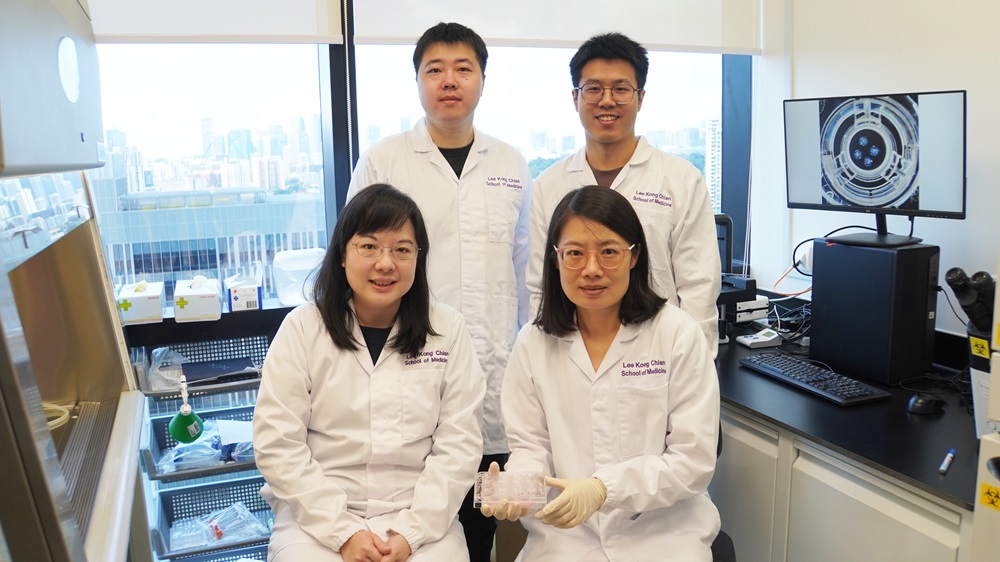
Image: Members of the LKCMedicine research team include (standing, L-R): Research associate Liu Meng, Research fellow Dr Zhang Chao, (seated, L-R) Asst Prof Foo Jia Nee and Asst Prof Xia Yun.
Scientists at NTU Singapore have successfully grown 'mini kidneys' in the lab and grafted them into live mice, revealing new insights into the metabolic defects and a potential therapy for polycystic kidney disease.
'Mini kidneys,' or kidney organoids, are kidney-like structures grown in the lab using stem cells. In the study led by NTU's Lee Kong Chian School of Medicine (LKCMedicine), researchers grew the organoids using skin cells derived from patients with polycystic kidney disease (PKD), a prevalent form of genetic condition that affects 1 in 1000 individuals across all ethnicities.
People with PKD often progress to end-stage kidney disease between their 50s and 60s, with the standard treatment options available being dialysis or a kidney transplant. However, dialysis significantly compromises a patient's quality of life, while a transplanted kidney can be challenging to acquire. One other option is the Food and Drug Administration (FDA) approved drug Tolvaptan, which is very costly and has severe side effects on the liver.
To address the need for more effective treatment for PKD patients, the NTU research team sought to better understand the disease by engrafting their newly developed mini kidneys into mice and found evidence that boosting autophagy (cell metabolism) could reduce the severity of cysts in the mini kidney.

Image: Immunofluorescence image of a polycystic kidney disease organoid.






